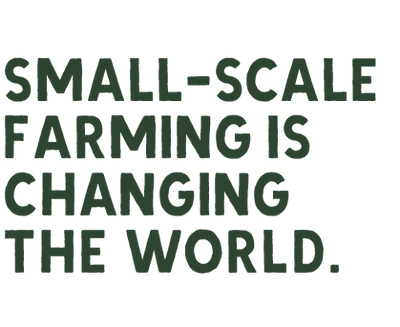Written by Jessie Gardner
My story isn’t interesting. No one will care. I’m not a storyteller. I don’t want the attention. I’ll be judged. I’m just not ready. It’s not finished yet.
These invisible walls rise up all the time when I ask farmers, or anyone for that matter, to share their story. The truth is, every farmer’s story, no matter where it sits on the spectrum of failure to progress, matters. Stories bring with them connection, hope, and the moments others need to believe their goals are achievable. That it’s possible to keep going.

How many conventional farmers have yet to hear a story about farming that represents them? About regenerative agriculture that they can relate to? Consider the home gardener and mother zapping parts of her garden with Roundup, completely unaware of the impact it has on her vegetables, and thus, on her children. Reflect on the cautious aspiring farmer unsure of whether they should take the leap and make it their life’s work, or the young couple who wakes up every day to the reality of the food apartheid, unaware that urban gardening and community fridges can support regenerative food access. These people are waiting.

They are waiting to hear the story of the success they crave or the failures they’ve faced. They are waiting for connection to another human being, one who is just a step ahead of where they stand, in order to believe, learn and move forward. We are losing touch with the legacies, cultures and wisdom of those who farmed when food was the connecting force within communities and synthetic inputs were not an option.
***


